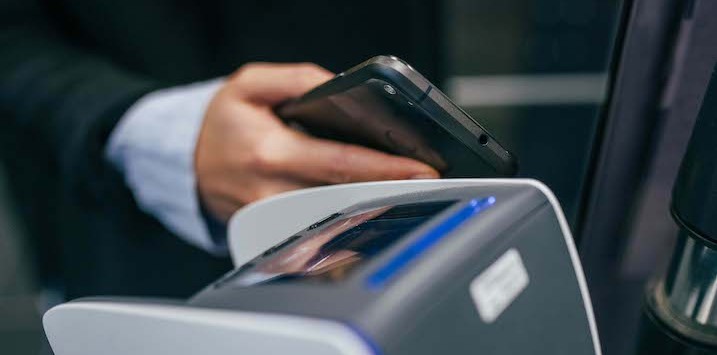
EML looks set to thrive as economies reopen
EML Payments (ASX:EML) is an exciting Fintech that delivers innovative payment processing technologies to organisations operating within many industries and countries. The business has weathered the COVID-19 lockdown much better than feared, and is now ideally placed to benefit as global economies reopen and the structural migration trend towards digital payments accelerates.
Historically focused on gift card solutions for shopping malls, EML is now strategically repositioning itself as the preferred technology enabler for disruptive Fintech clients targeting large and lazy sectors like traditional banking, insurance and real estate.
A recent trading update encouragingly confirmed that EML remained cashflow positive during the COVID-19 lockdown period, a much better outcome than the market had feared, and signs of a recovery in May suggest we have potentially seen the low point for the business. Additionally, the reloadable segment proved resilient against the challenging backdrop, continuing to deliver solid organic growth, launching new programs and signing up new clients.
EML now represents a levered play on global economies reopening and the ongoing structural migration towards digital payments, a trend which should accelerate on the back of the pandemic. We also see the company as uniquely placed to cross-sell various Fintech client services embedded into the technology platform, further enhancing the value proposition and driving incremental profit streams.
Having repriced and restructured the PFS deal in late March, EML retains a strong balance sheet ($125 million net cash as at the end of April) with plenty of firepower for future acquisitions, while we think valuation remains attractive for the growth profile – the stock is trading on 12x pre-COVID EBITDA expectations, growing earnings by 15-20 per cent per annum over the medium-term.
Key details from the trading update (20 May 2020):
- March Group EBITDA of $1.9 million was down 37 per cent on the prior period. COVID-19 lockdowns drove widespread global mall closures, negatively impacting the Gift & Incentive (G&I) segment which mainly comprises mall gift cards (G&I gross debit volume (GDV) fell 29 per cent year on year with a larger earnings impact given the comparatively high 600 basis point revenue conversion rate). The reloadable (GPR) and the Virtual Account Numbers (VANS) segments were resilient, both generating strong growth in March with GDV up 10.4 per cent and 56 per cent, respectively;
- April Group EBITDA of $2.7 million, including PFS contribution plus a $2.2 million breakage release. Most malls were closed during the month so G&I GDV experienced further sharp falls (53 per cent below the prior period). GPR excluding PFS produced strong GDV growth (26 per cent) reflecting salary packaging roll out and surprisingly resilient online gaming turnover. PFS’ GDV growth rate slowed from 39 per cent in January and February to 12 per cent in April – digital banking and multi-currency travel cards were impacted by lockdowns, partially offset by growth in government disbursements, although this mix shift was negative for contribution margins. VANS GDV growth was positive (9 per cent), albeit compressed by timing of new customer launches;
- Cash conversion is tracking at around 100 per cent year to date, a strong improvement on 1H20;
- Balance sheet is in a strong position with $125 million net cash as at the end of April, plus $37 million of breakage accruals (three quarters should convert to cash over the coming 12 months);
- Management noted that although steps were taken to reduce headcount, cost cuts weren’t significant;
- In late March when EML announced it had renegotiated the PFS deal (settled 31 March), the primary objective was to avoid bringing on debt into the capital structure so the company could survive at least two years with zero revenues (unlikely scenario) on a monthly cash burn rate of $5-6 million. Clearly, the business performed much better than this over March and April;
- EML proudly provided some examples where its solutions were used to help vulnerable people during the COVID-19 pandemic. Nepo utilised EML to distribute emergency funds in the UK to support domestic violence victims while Epipoli deployed EML gift cards to aid the Italian Government in disbursing emergency funds to citizens in financial need;
- Near-term, EML expects trading conditions to sequentially improve in May and June from the April low as malls around the world gradually reopen. By June, the majority of malls in Italy are scheduled to be reopened, 60 per cent in Germany, 50 per cent in the US and 45 per cent in Canada. Timing in the UK remains uncertain. EML has 1,100 mall programs globally.
- PFS GDV growth has accelerated back to around 20 per cent in May; and
- Management highlighted that the sales pipeline is as strong as ever. COVID-19 has fast-tracked many company’s digital plans and EML fully intends to take advantage of this.
The Montgomery Small Companies Fund own shares in EML Payments. This article was prepared 01 June with the information we have today, and our view may change. It does not constitute formal advice or professional investment advice. If you wish to trade EML Payments you should seek financial advice.
The Montgomery Small Companies Fund return since inception (21 September 2019 to 12 June 2020) has exceeded The Fund’s benchmark, the S&P/ASX Small Ordinaries Accumulation Index, by 9.9 per cent. For an update on the recent performance, please review this article.